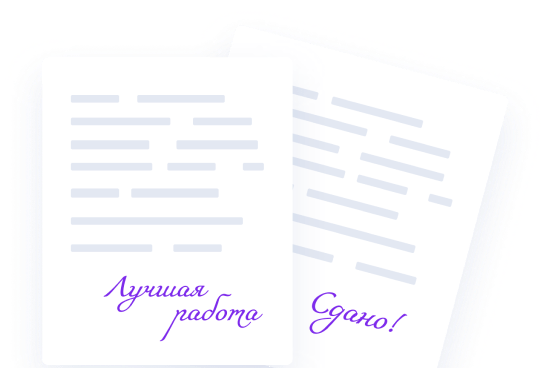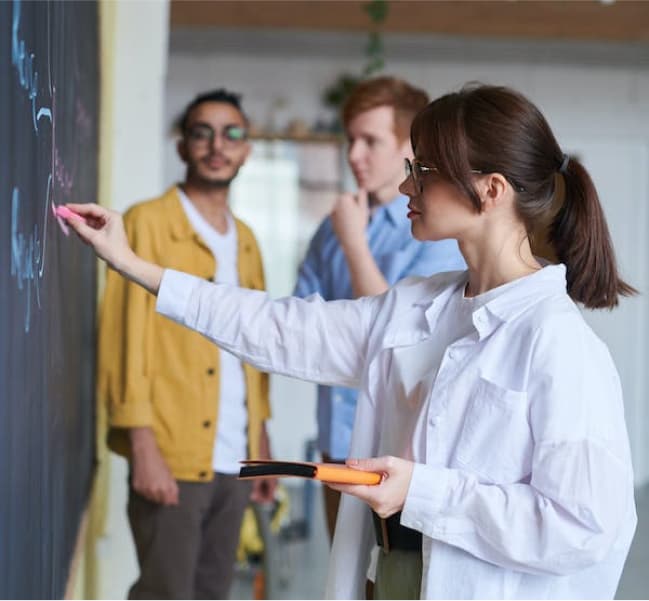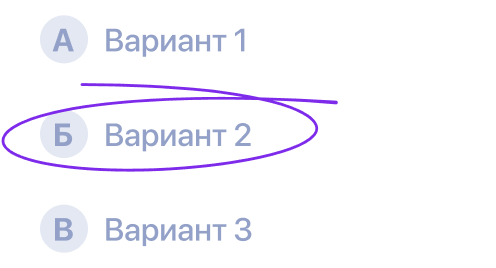Our group: expectations vs. reality
Выбери формат для чтения
Загружаем конспект в формате docx
Это займет всего пару минут! А пока ты можешь прочитать работу в формате Word 👇
Introduction
This individual reflection is written to analyze all the process we went in this module: from group forming stage to Q&A session with the client, to get a better vision of strong sides of our team and points of improvement. This module journey has been accompanied with multiple debrief meetings, where each member of the team was supposed to reflect on the tasks we were supposed to do and explain how we felt about it.
Generally, this reflection can be divided into two different pieces:
1. Reflection on the group
2. Reflection on tasks we were supposed to achieve.
Potentially, combined reflection of these two groups would give reflection on overall experience I had as an individual during this module.
Reflection
Our group: expectations vs. reality
Few weeks after module has begun, we were asked to fill the Belbin questionnaire, which was supposed to predict our team roles for the best outcome (Belbin, 1981). After the groups were assigned, all the group members had similar questions: how it works and how it is going to affect the group? As third year students, studying the same course, we knew each other as well as strong and weak sides, and that was the reason we had expectations about upcoming teamwork. Some of them were positive, some of them were negative, as all of us had their own experience with other group members. Before we began to analyze the results, I already knew some facts about my group. For example: I knew, that Jurate is a strong team player and potentially can be our group leader, as she has got skills for it and can communicate efficiently to increase team spirit. Lewis has got strong visual skills, so I already knew, he is going to be one of the group members responsible for visual content. I barely knew Tomisin, as I have not worked with him at all, but I had my first impression about him, which appeared to be truthful later. He seemed like introvert, but with ability to analyze and make conclusions, as well as to make sure, the message is delivered the way we meant it. Overall, I was happy with Belbin team results, as it seemed that we have a strong team, we still had one more group member, who I had negative experience with. I had spent enough time working with Esther during other projects, and I already knew what she is like, although I always had hoped something is going to change.
After meeting the team, we were asked to analyze the results of Belbin questionnaire and answer some questions about strong sides and possible improvements each of us can achieve. He had discussed the results, and agreed, that Belbin questionnaire can be useful as a prediction only, it will never collect all the correct data, as all the answers will be different each time. We decided that team effort will give more positive results rather than results of the questionnaire. And we were correct, as questionnaire does not guarantee the particular outcome, but only shows possible way the team should work (Batenburg et al. 2013)
Obviously, all the process of creating a campaign was not so easy, as we had no similar experience, and we found it hard. If we could not achieve the task or have done it wrong- it affected our team spirit. We had a moments, where half of the team did not show up on group meeting or class and ignored all the messages, so only two of group members had to spend two times more time and effort to achieve the task, and we had completely opposite, when all the team was putting the effort to achieve the result. Also, it needs to be mentioned, that all of team members are working on different days and times, so it was difficult to arrange at least an hour-long meeting to get something done, but we have proven, that our team members are responsible enough, to do different tasks alone, and to discuss them with the group later. I could not say it was very useful all the time, as we had some moments we were supposed to do as a team only, but we did not, and it had its impact.
Another important point is in communication within the group, its importance and impact it caused. Unfortunately, some of our group members faced different situations, which had negative impact on their mental health and ability to contribute. It happened few times, and at the very beginning I did not know what right decision looks like, so I had to ask about some help from tutors to get it solved. These cases could be reflected by Rolfe et al.’s reflective model, which involves three questions: What? So What? Now What? (Rolfe et al., 2001).
What happened? We had few members who could not contribute on meetings and classes because of their current situation, which affected their mental health and wellbeing in general.
So What? Our group was one or more people short, I was unable to contact any of them as well as affect them somehow, as it was inappropriate. We had to divide all the tasks between four group members, instead of five. And it was not such a problem only if we knew for how long.
Now what? As a team, we decided not to bother other group members, and let them mentally get in a proper working condition. And I can say it helped. Week or two we gave these group members to rest, while we did a bit more than we should, but overall result was positive, so I can state, that effort we put in was paid off.
Also, it needs to be mentioned, that our team at the very beginning and at the end of the project was completely different. We understood all the importance of each group member, even those, that I thought are going to be not so important. We managed to improve our communication from medium level to high, which was one of the reasons we eventually achieved pretty good for our team result. I, as a group member, learnt how to take responsibility of whole group. I was always sure that somebody will take over if it would be necessary, but I never wanted to do it. Experience with this group showed me, that I can do it and not to ruin it all. Also, I learnt how to look on situation from other perspectives and try to see something as same as others do. Having your own opinion is great, but when it comes to arguments about individual point of view- it’s always necessary to understand how others may perceive it.
How we came up with the campaign.
When our task was revealed, I felt confused and exited about it at the same time. Obviously, not clear vision of the task was leading to inner stress about the project, but it was getting better over time. Luckily, our task was explained well, and we had a plan to follow, so it made the project much easier, as we were not supposed to design something ourselves- tasks were divided by weeks, and each task had short description. Also, it needs to be mentioned, that our progress was monitored all the time, so it was easy to understand, are we going the right way, or we are being behind the others.
First serious task we faced as a group was mock client request for an EV. We were briefed with a short description of two persons, with some helpful facts which could help us to find a suitable product for them. Also, we had short amount of time to ask questions. Unfortunately, we did not think so well about the questions, as we did not ask anything specific and helpful. Instead of it we could ask about preferences and attitudes towards brands or models to get a better understanding of what product our client wants and needs. Although we discussed it as a group and agreed on everything- we failed. Each of us had some arguments about the choice we did, but client is always right, and we did almost one request correctly out of two. We were given a debrief meeting after the task, where we were required to answer some questions about the experience we had.
(Please see Appendix 1.)
We did not have any similar tasks anymore, so we focused on our deck, as there was much to do. First, we were asked to have a rough draft of our deck: cover page, agenda and brief, which was done successfully. After the draft, we continued with our research. Now, our goal was to get the primary research done. And here was the first point where we began to struggle as a team. We had a team meeting, where we discussed how are we going to do it, when and how to write down the findings. Although the task was clear to everybody- few of the group members could not get it done on time. For example, we could not get all the signatures on ethics form, as I and Jurate was simply informed while we asked everybody to get it done on time. Consequently- we were one or two weeks behind. Second, we decided to do two or three persons each and then evaluate the results to find the most suitable to our aspirer profiles. I had this done in few hours after the meeting, and I decided to do a bit extra, as I had many people answered on the questionnaire, that I posted on my social media. Apparently, I was considering, that someone is going to need the answers I have got extra, and I was right. In addition to this, I started to notice, that our group became not so project-focused, as other group members started to miss the classes with no messages left and ignore afterwards. This was the point where I felt stressful about other’s attitude towards group work, as their actions affected the result of whole group. Emotions I had can be clearly seen on debrief meeting two. (Please see appendix 2).
After the research, we were supposed to get it into key insight, pointing out the most important findings in research summary. We had no similar experience of analyzing the research and coming up with summary, so we spent much time to get it done properly. Using the help of the tutors our team managed to get it right, and we even made it visually attractive.
Next step we began to struggle with was idea of the campaign, as it was difficult to come up with one idea. We decided to think about multiple choices to have an alternative just in case our main idea fails. It took us few weeks to come up with the concept of webinars, which became our main idea. And surprisingly, it worked well. We developed the idea into whole concept with host, scenario, streaming platforms etc., so we considered it as done. Although we uploaded our presentation, we had Q&A left, and I did not know what to expect: was our campaign good enough? What others going to say about it? How to react? But when Q&A was over, I understood that all the self-doubt I had was excess. After Q&A session we still had Debrief meeting 3 left, which was aimed to analyze the project overall. It can be seen in notes, my emotions cooled off since debrief meeting 2 and I was able to analyze overall experience. (Please see appendix 3)
What did I learn during the project?
First and the most important I learnt how to communicate with the group of people you do not know so much, even in stressful situations. All the project depended on communication, as five completely different group members, with different perception and knowledge must come up with one general idea. Although sometimes it was very difficult, I think I learned how to reach my group members with the message I had.
Second important point, that I learned is in being helpful to others. I did some of the things I was not asked to do just because I could do them, and it boomeranged to me. My group helped me when I was struggling. As I have mentioned before, each of the group members had strong and weak sides, and some of my group member’s strong side was my weak side, so together we made it appropriately.
Third, I learned that even smallest effort you put into something can grow in something big as a result. Many different pieces we included in our final presentations were suggested as something irrelevant, but it may be something good if you adjust it a bit.
Overall reflection on project
Schön’s model will be applied to get better vision and understanding of the whole project and experience I gained. Schön’s model of reflection consists of two stages: reflection during the action and reflection after the moment has passed (Schön,1983).
During the project: I thought it was very difficult, as it required loads of time every week. Also, another difficulty was in group work. I thought it was going to be stressful, as I had previous experience with my group members. It was difficult to get the deck done, as we did not have a clear vision of how it should be.
After the project: Lack of experience made it stressful and difficult. The project itself was interesting with loads of opportunities and learning outcomes. Thoughts I had about my group have totally changed as I spent enough time with them. It took me a while, but now I can understand behavior and certain actions of my group members. It was a great opportunity to give myself a test, how well I can do a task within a group and how good I will be in finding approach to my group. I am sure I will be able to use communication skills and experience of group work I had now in my future career.
References
Batenburg, Ronald, Van Walbeek, Wouter, and In Der Maur, Wesley. "Belbin Role Diversity and Team Performance: Is There a Relationship?" The Journal of Management Development 32.8 (2013): 901-13. Web. [Accessed on 30th April,2021]
M. Belbin, 1981, Management teams, why they succeed or fail Heinemann, London (1981) [Accessed on 30th April,2021]
Rolfe, G., Freshwater, D., Jasper, M. (2001) Critical reflection in nursing and the helping professions: a user’s guide. Basingstoke: Palgrave Macmillan. [Accessed on 30th April,2021]
Schön, D. A. (1983). The reflective practitioner: how professionals think in action. New York: Basic Books, Inc. [Accessed on 1st May,2021]





